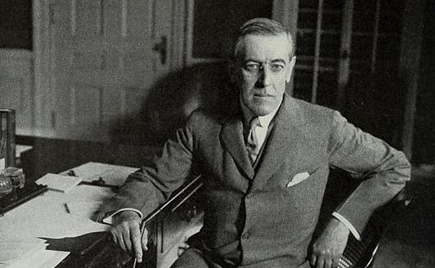The debate over Woodrow Wilson
 The World's Work, 1914
The World's Work, 1914
Students and administrators at Princeton University are currently debating whether Woodrow Wilson’s name should be removed from the university’s School of Public and International Affairs. The reason? While president, Wilson introduced segregation into the federal government—a stunning development at a time when the government was an island of integration in the midst of segregated Washington, D.C.
The Wilson administration took up the issue of segregation almost as soon as Wilson took office. In an April 1913 Cabinet meeting, the postmaster general argued for the segregation of post offices. Wilson agreed. He forcefully defended the spread of segregation across the federal government, despite protests, petitions, and pleas from African-American leaders, white racial liberals such as Oswald Garrison Villard, and ordinary people from across the country.
Increasingly, the decisions Wilson made in the first year of his presidency are coming to overshadow the ones he made much later in his tenure. On the Dec. 6 edition of All Things Considered on NPR, the Miller Center’s Brian Balogh joined his BackStory cohost Peter Onuf to debate Wilson’s changing legacy.
Listen to the interview here.